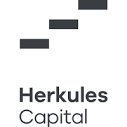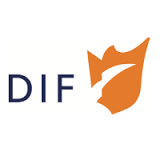
- Strong commitment to inclusion and labor participation with unprecedented focus on diversity and MWBE opportunities throughout the project targeting a 30% goal
- Featuring world-class architecture, security, shopping and convenience
- Establishing an Airport Academy to train local workers in airport operations and management
- New terminal will be fueled by a target of 100% renewable energy
New York, NY – The Terminal One Team, comprising Terminal One Group Association (TOGA) and its world-class team of operating and financial partners, today welcomed the Port Authority of New York and New Jersey’s decision to move forward with the redevelopment and expansion of John F. Kennedy (JFK) Airport’s Terminal One in accordance with Governor Cuomo’s Vision Plan for JFK. Terminal One Group Association comprises Air France, Lufthansa, Korean Air and Japan Airlines – all of which partnered in 1994 for the original development of Terminal One at JFK. TOGA is joined by a world-class team of operating and financial partners to help deliver one of the largest public-private partnership projects in America. The TOGA team is an innovative coalition of airlines, labor, minority- and women-owned businesses and strong financial partners that includes: The Carlyle Group, together with its dedicated airport platform, CAG Holdings, JLC Infrastructure, Ullico and Munich Airport International.
“The TOGA airlines are committed to providing world-class levels of service to the people of New York State and New York City. The TOGA partner airlines have been serving JFK for more than 60 years,” said Arthur Molins, Managing Director for TOGA. “We have demonstrated our commitment to the New York market for decades, are confident in its growth potential and look forward to our sustained presence here well into the future.”
“Governor Cuomo has thrashed all the myths about minority participation in major infrastructure projects by insisting on a 30 percent standard throughout the project,” said Earvin “Magic” Johnson, co-founder of JLC Infrastructure. “The old excuses – there are not enough minority contractors, not enough minority financing, not enough minority entrepreneurs – have all been tossed out the window with this project.” JLC Infrastructure is a Port Authority-certified minority owned business and will provide financing for the project.
The new Terminal One will encompass 3 million square feet of terminal space on what is now Terminal One, Terminal 2 and the site of the former Terminal 3 – with 23 new gates (potentially increasing to 27) and additional aircraft parking positions, providing significant additional capacity for millions of passengers.
The Terminal’s architecture will be a unique and iconic gateway, inspired by New York City and all it offers; one such upgrade will be the arrivals corridor, which draws from New York City’s High Line, and will make a grand first impression with clear views of the city’s iconic skyline. The new terminal will bring the current AirTrain inside the facility, improving access and convenience, while offering family-friendly play areas, indoor parks and best-in-class concessions with a strong local Queens flavor.
The facility will offer a seamless, state-of-the-art security experience, cutting down on wait times and providing a more advanced screening process, along with a top-of-the-line baggage claim process to allow passengers to move quickly through the terminal. The new, cutting-edge screening technology will be highly adaptable to combat the ever-evolving threats faced by airports.
The Terminal One Team has also committed to environmental sustainability for its redevelopment of JFK. The redevelopment will reduce energy use in the terminal by 30 percent and switch to 50 percent renewable energy with a target of up to 100 percent renewable energy by 2025. The new terminal will also implement 100 percent composting of organic waste and recycling of inorganic waste.
Construction is expected to begin in early 2020 and finish during the second half of 2025, with the new terminal opening in phases to ensure uninterrupted gate capacity and a seamless transition.
“This project will put thousands of union members to work for a long period of time. With union investment in this deal, this is a partnership model that works for workers, management and investors. The Terminal One Team, in line with the objectives outlined by Governor Cuomo and the Port Authority, went the extra mile to make sure this project is a winner for all parties,” said Edward Smith, President and CEO for Ullico Inc.
The Terminal One Team has also made the JFK community an important element of its plan, including a preference for local businesses, jobs for local residents and quarterly job fairs for New Yorkers, paving paths to permanent employment and community development. In addition, the team is establishing an Airport Academy at JFK to help Queens and regional residents learn the skills needed to work in airport operations, whether at JFK, LaGuardia or anywhere in the world.
“We’re supporting TOGA to deliver a world-class travel experience,” said Peter Taylor, Co-Head of Carlyle’s global infrastructure fund. “TOGA has partnered with Labor and Minority- and Women-Owned Business Enterprises (MWBE), including capacity building and training. TOGA’s MWBE goal is throughout the project, from engineering and architecture, to financial and legal as well as construction.”
“JFK is the world’s gateway to New York and the United States’” added Amit Rikhy, CEO of CAG Holdings. “Working with TOGA, our collaborative, local and world-class team and plan will deliver a redeveloped Terminal One that is part of the unified, interconnected and premier airport New Yorkers deserve.”
See our video here: https://www.carlyle.com/media-room/corporate-videos/ready-fly-%E2%80%93-one-jfk
* * * * *
About TOGA
TOGA is a New York-based limited partnership of four international airlines: Air France, Japan Airlines, Korean Air and Lufthansa. TOGA was originally formed in 1994 and entered into a long-term Site Lease with the Port Authority of New York & New Jersey to finance, construct, maintain and operate a new passenger terminal facility at JFK, now known as Terminal One. The Terminal is home to the four TOGA Airlines plus 19 other international airlines and is on pace to process approximately 7.7 million passengers to over 38 nonstop international destinations in 2018. With 10 international gates, Terminal One has been operated by TOGA since May 1998 and is one of only two terminals at JFK that can serve the Airbus 380 superjumbo aircraft.
For media inquiries, contact Arthur Molins at arthur.molins@dlh.de or at +1 516 296 9234.
About The Carlyle Group and CAG Holdings
The Carlyle Group (NASDAQ:CG) is a global alternative asset manager with approximately $210 billion of assets under management across 335 investment vehicles as of June 30, 2018. Carlyle’s purpose is to invest wisely and create value on behalf of its investors, many of whom are public pensions. Carlyle invests across four segments – Corporate Private Equity, Real Assets, Global Credit and Investment Solutions – in Africa, Asia, Australia, Europe, the Middle East, North America and South America. Carlyle has expertise in various industries, including: aerospace, defense & government services, consumer & retail, energy, financial services, healthcare, industrial, real estate, technology & business services, telecommunications & media and transportation. The Carlyle Group employs more than 1,625 people in 31 offices across six continents. www.carlyle.com
CAG Holdings is The Carlyle Group’s dedicated US-based investment platform for airport infrastructure investment opportunities globally. CAG Holdings is led by an experienced management team with a track record of over 70+ airport projects globally combined with a deep, localized understanding of the US airport market.
For media inquiries, contact Chris Ullman at chris.ullman@carlyle.com or at +1-202-729-5450.
About JLC Infrastructure
JLC Infrastructure is an investor and asset management firm focused on the transportation, communications, energy, utilities and social infrastructure sectors in the United States. The firm was formed in 2015 by Loop Capital and Magic Johnson Enterprises and currently manages investments in the redevelopments of Terminal B at LaGuardia Airport and Jeppesen Terminal at Denver International Airport (the Great Hall Project).
For media inquiries, contact info@jlcinfra.com.
About Ullico
For more than 90 years, Ullico, the only labor-owned insurance and investment company, has been a proud partner of the labor movement, keeping union families safe and secure. From insurance products that protect union members, leaders and employers, to investments in building projects that have created thousands of union jobs, our customers continue to trust us with protecting their families, employees and investments. The Ullico Inc. Family of Companies includes The Union Labor Life Insurance Company; Ullico Casualty Group, LLC.; Ullico Investment Company, LLC (Member FINRA/SIPC).; and Ullico Investment Advisors, Inc.
For media inquiries, contact Cori Houlihan at choulihan@ullico.com or at +1 202 354 8044.








 Nordic Capital has divested its remaining shares in Saferoad Holding ASA (“Saferoad”), a European leading provider of road safety and infrastructure solutions.
Nordic Capital has divested its remaining shares in Saferoad Holding ASA (“Saferoad”), a European leading provider of road safety and infrastructure solutions.